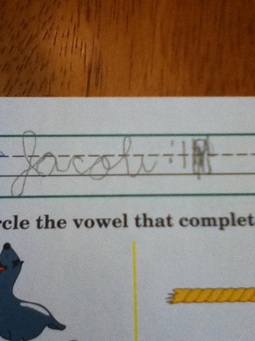"Teaching is not a job. It is something extraordinary that one cannot explain." -- Tamas Ungar

But what makes me love it so much? Putting the answer to that question in few enough words to create a blog entry is a bit of a challenge. There are so many reasons, I could never cover them all! As I mentioned, teaching is just something inside of me that doesn't seem to have a choice but to come out. When you spend your days doing something that is just at the core of your being, you can't help but love doing it. Of course, there is much more to it than that, though. And that's what I want to share today.
When I share what I know and love with my students, the rewards that I receive are far greater than any tuition payments I ever receive. And the rewards have been exceptionally great the past few weeks. There have been many, and they are widely varied. There was the extremely gifted student, whom I've been teaching for 5 years, who bridged the gap between "notes" and "music" and nearly made me cry with his beautiful performance of the second movement of Mozart's Sonata in C. He said that, while he played, he imagined a fairy dancing around, then being chased by a dragon, and finally being rescued by a prince.
There is another student who takes what he is learning and writes his own music very frequently. He often surprises me with new compositions that are very well written. Last week, he had written an arrangement of a worship song that would fit the skills and reading ability of his younger sister, so she would have something familiar to play in just her second month of lessons.
These rewards don't always come in the form of amazing piano playing, though. Sometimes, it's the little boy who turns to me and says, "Mrs. Brown.... If I ever get to play tuba, I want you to be my teacher." I chuckled at this and responded, "I don't know how to play tuba. You wouldn't make very much progress if I was your teacher." As he turned back to the piano, he said, "Well, if you could play the tuba, I would want you to be my teacher." I took this as a great compliment. You see, just two months ago, this same little boy was trying to find ways to get me to fire him as a student, because his mom wouldn't let him quit lessons. He seems to have turned a corner and begun to love coming to piano lessons.
Sometimes it's even just little things like a "thank you" at the end of a lesson. I'm blessed with very polite and respectful students. But one student, in particular, stopped at the door on her way out this week and made a special effort to thank me. She said, "Mrs. Brown, I want you to know that I really appreciate you teaching me. And when you sometimes give me an extra 5 or 10 minutes...I really like that. Thank you!"
I even love the cute little things, like pictures they draw. I have pictures on my wall of me playing piano. Others of just random designs using music symbols. Sometimes, it's a nicely drawn staff with all of the note names labeled "to help the other students remember their notes." I even have a small, stuffed 8th note pillow that a student made herself. Oh, and then there is the amazing drawing of Josh Groban that a former student did for me. It still sits in a place of honor near my piano. I love these little gifts! It tells me that the students think of me even when they are not at their lesson.
Then, sometimes I receive emails or text messages from parents of things that their child did at home. I've had some post videos of them practicing to my studio facebook page. Or they'll be excited about getting a new piano and send me a picture. The most recent thing shared was a clever little thing that a student did with his name at the top of his school work. He added a repeat sign after his name and said, "Look! It says 'Jacob Jacob'!" Haha! (See pic below). It's wonderful to know that piano is becoming a regular part of their lives.
Since my preference is to start students from the very beginning, I get to experience a lot of different phases in their development as a musician, and as a human being, in general. I watch them grow up. I see them change physically, mentally, and socially. I get to help them go from a brand new student filled with wonder (and sometimes a little fear) to one with excitement about all of the amazing new things they are learning, and eventually to one who is accomplished and confident and ready to share their gift with the world. Because of that, we often become very close. Young students will sometimes call me "mom" by accident. Teenage students will sometimes tell me their deepest secrets. This week, a 5-year-old boy even blew me a kiss as he left! And then, at the end of the very next lesson, I was given a giant hug by an autistic boy who usually doesn't like for me to touch him much at all.
I still don't know if I will ever consider teaching piano lessons a "job." Whatever it is, though, I definitely love it!

 RSS Feed
RSS Feed